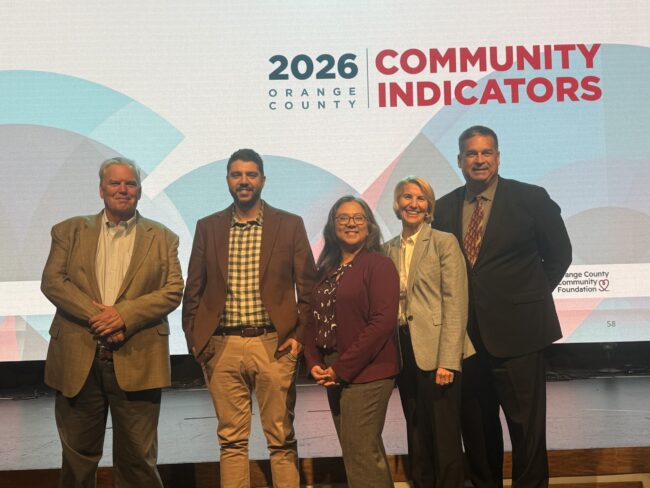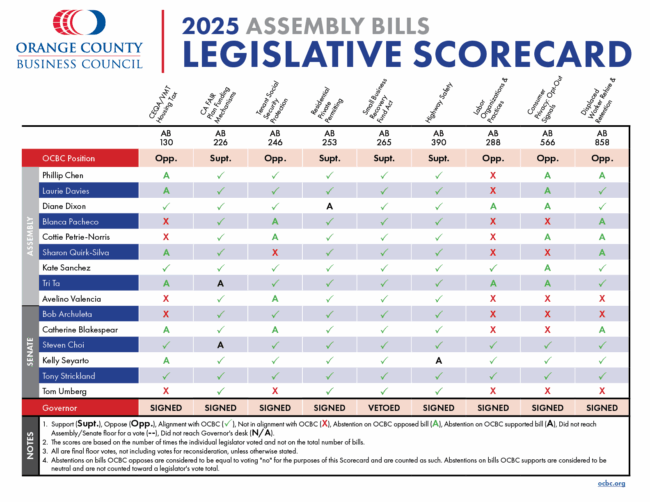2026 Orange County Community Indicators Report & Rollout
November 13, 2025
The economic success of Orange County depends on the strength of its people, infrastructure, and communities. Orange County Business Council, in collaboration with CalOptima Health, First 5 Orange County, Orange County Community Foundation, and Orange County United Way, is proud to host the 2026 Orange County Community Indicators Report & Rollout Business Connections program on Thursday, November 13, from 1:30 – 3:30 PM (PST) at the Vanguard University William J Seymour Sanctuary.
Attendees will be the first to receive an exclusive preview of the latest insights shaping the region’s business climate and quality of life. From workforce readiness, housing affordability, and infrastructure investment, this discussion will unpack key findings from the report and provide a roadmap for businesses and community leaders to innovate, collaborate, and invest in the future of Orange County’s prosperity.
This year’s program will explore how data-driven insights can inform local policy, guide community investment, and support shared solutions to the region’s most pressing challenges. Participants will gain a deeper understanding of the trends impacting Orange County’s economy and learn how collaborative efforts across sectors can sustain a strong, inclusive, and resilient future.





